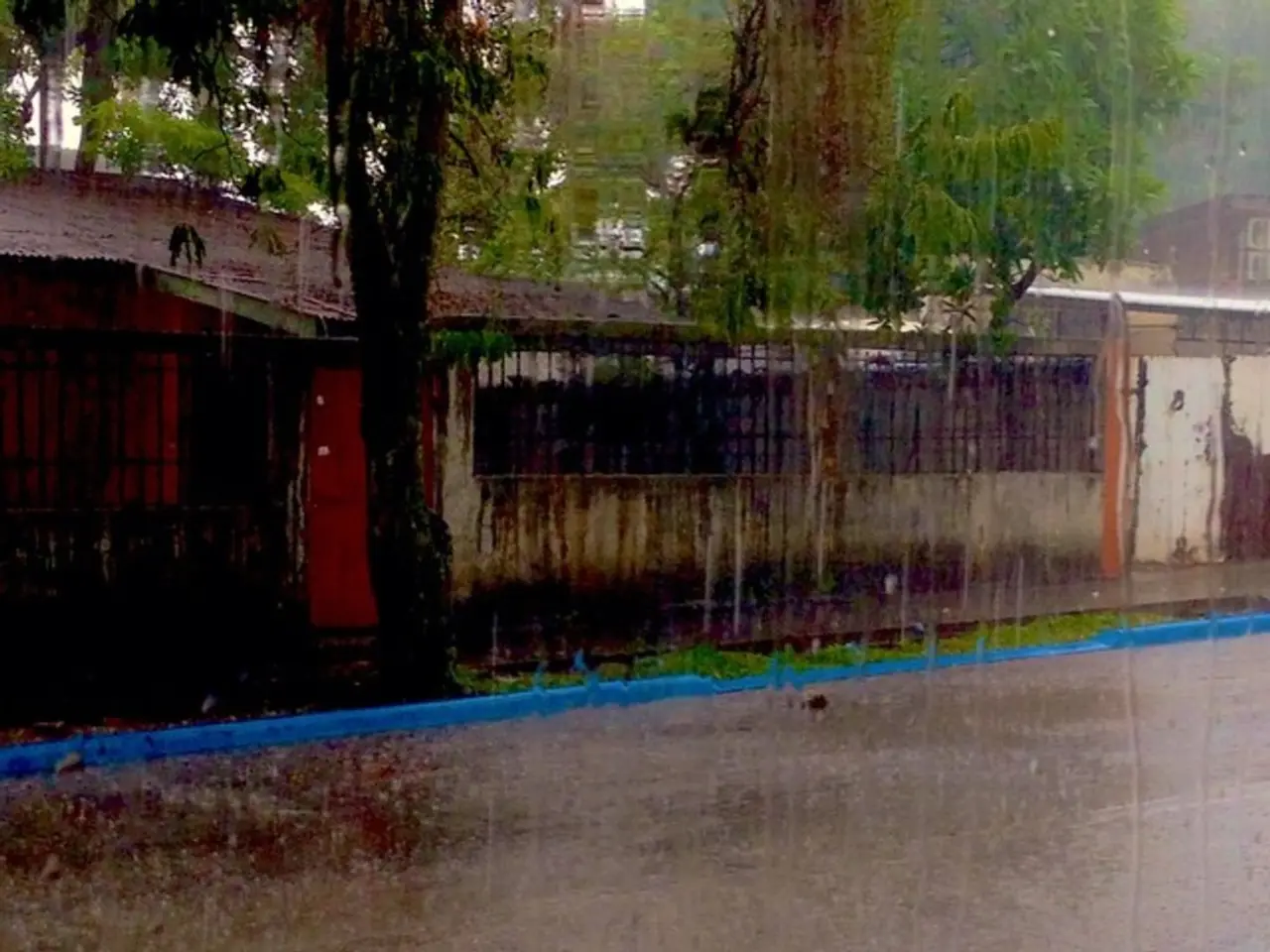Extreme Cold Sweeps Krasnodar Region after 49 Years, Breaking Previous Low Temperature Records
In an unexpected turn of events, the city of Krasnodar, Russia, experienced a record-breaking cold snap in July 2025. This marked a significant departure from the usual summer heat, as the city's average temperature during this month dropped to a shocking low, breaking a record that had stood for 49 years.
On July 2nd, 2025, the mercury dipped to an astonishing +11.9 degrees Celsius, shattering the previous record low temperature of +11.9 degrees Celsius recorded in July 1976. This temperature drop was reported by the "Weather and Climate" portal, highlighting the unprecedented nature of the event.
The cold spell in Krasnodar was part of a broader weather anomaly that affected parts of Central Russia. This unusual pattern was characterized by cooler-than-normal conditions, increased cloudiness, and higher precipitation, contrasting with the general pattern of drought and high temperatures in southern Russia.
During July 2025, Krasnodar experienced cooler temperatures compared to neighbouring regions facing heat and drought stress. This was due to timely rains and milder conditions that spared Krasnodar from the worst impacts of the drought seen in other Black Sea grain-producing regions.
The average temperature in Krasnodar during July 2025 was a surprising +20.9 degrees Celsius, marking the lowest average temperature recorded for any month in the past 70 years. This was a significant deviation from the norm, with the average temperature in Krasnodar typically hovering around +24.9 degrees Celsius in July.
Interestingly, the average temperature in Krasnodar during July 2025 was lower than the average temperature in June 2025, which was previously reported as the coldest month in Krasnodar in the past 70 years, with an average temperature of +20.6 degrees Celsius.
This record-breaking cold snap in Krasnodar is a stark reminder of the unpredictable nature of weather patterns and the need for continued monitoring and understanding of climate changes. As we move forward, it is essential to adapt to these changes and take necessary measures to ensure the resilience of our communities and the environment.
The anomalous weather pattern that affected Central Russia in July 2025, included cooler-than-normal conditions and higher precipitation, and was characterized in the science of environmental-science as a departure from the general pattern of drought and high temperatures in southern Russia. This record-breaking cold snap in Krasnodar in July 2025, as reported by the "Weather and Climate" portal, underscores the importance of continued scientific research on the weather and its impact on our environment.








